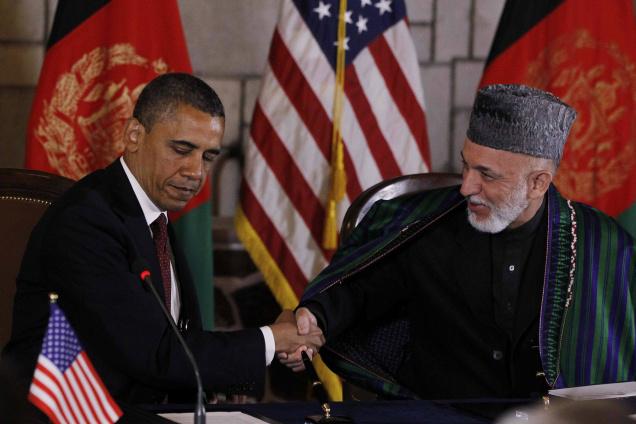
Washington, May 2: U.S. President Barack Obama and his Afghan counterpart Hamid Karzai signed a landmark strategic partnership agreement in Kabul laying out American support for the war-torn nation for a decade after 2014 when NATO forces conclude their combat role.
The ten-page long-term strategic partnership agreement pledges U.S. support for Afghanistan for a decade after 2014, when NATO forces are planning to conclude their combat role.
Mr. Obama, who arrived in Kabul in the middle of the night on an unannounced trip is scheduled to address the American people from the Bagram air base around 7.30 pm New York time, which is 5 pm IST.
The speech, coinciding with the first death anniversary of Osama bin Laden, is expected to last about 10 minutes.
Senior U.S. officials said the timing of the trip was driven by the negotiations over the Strategic Partnership Agreement and by the desire of both presidents to sign the agreement in Afghanistan prior to the NATO summit in Chicago later this month.





Comments
Add new comment